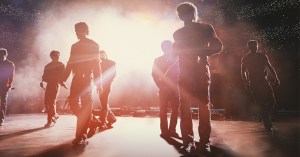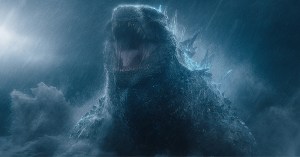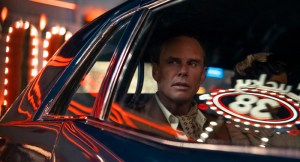She-Hulk: Attorney at Law Case Files: What the Finale Reveals About What’s Next for Jennifer Walters
The Marvel Cinematic Universe shudders as She-Hulk shatters the fourth wall. Where can the series and the character possibly go from here?
She-Hulk: Attorney at Law wrapped up Thursday in quite possibly the only way it could: with its most involved Marvel in-joke yet. But in setting up that punchline, it also teased a few new developments for the wider Marvel Cinematic Universe and completed Jennifer Walter’s (Tatiana Maslany) origin story.
That means, of course, there’s plenty to discuss in terms of homages, character developments, and where we might see Jen next, so let’s crack open this latest case file and see what we can discern about the Sensational (or is it Savage?) She-Hulk.
Spoiler alert: The following reveals details from the final episode of She-Hulk: Attorney at Law season 1. Stop reading here if you have not watched the episode and wish to avoid spoilers.
Role Reversal
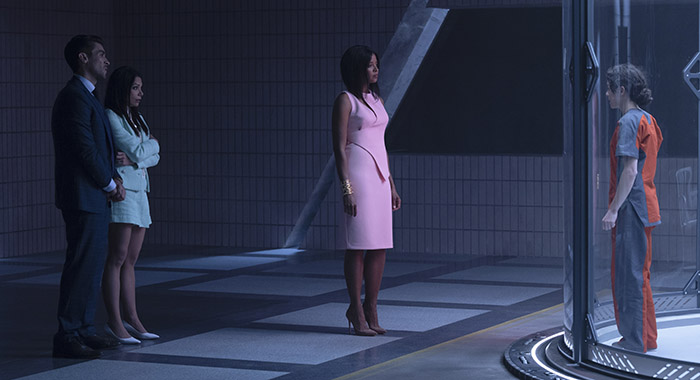
(Photo by Chuck Zlotnick/Marvel Studios)
As we surmised last week, part of HulkKing’s plan was to assail She-Hulk’s public image by creating an incident in which her rage got the best of her. It is, in its way, a genius aspect of the scheme as Hulks have been friendly heroic monsters for at least a few years prior to the Battle of Earth (as seen in Avengers: Endgame). It terms of meta-commentary, it also plays into the constant need for women in the public sphere to keep their emotions in check, even in the face of egregious violations and embarrassment, lest old stereotypes get invoked and a further assault occur.
Which is pretty much the only thing Mallory Book (Renée Elise Goldsberry) gets to say — one way or another — in the last two episodes.
Her point is completely valid even if it flies in the face of the MCU playbook. Under the usual circumstances, the hero gets a chance at an emotional catharsis via their powers or by direct physical confrontation with the bad guy. But as the episode begins, Jen can do neither thanks to a night in Emil Blonsky’s (Tim Roth) old cell and a plea deal for the Hulk-out incident that requires her to wear a power inhibitor. In lieu of the familiar physical catharsis, we get a pretty fun recreation of the 1970s Incredible Hulk television show opening sequence and, we have to admit, some great 1970s fashion for Maslany and Mark Ruffalo. Besides a fun reference to the Hulk’s television past, it also serves as a preamble for the journey Jen is about to embark on.
Part of that journey involved the termination we expected from the look on Holliway’s (Steve Coulter) face last week. Although he was absent from the proceedings in the finale, it was clear the terms of her plea deal would preclude her from continuing to work at GLK/H. They wanted She-Hulk as their public image and even if Mallory had arranged a deal for her to retain her powers, we imagine the incident still would have meant the end of her job.
It is, in part, pretty consistent with the depiction of Holliway throughout. Affable and seeming tolerant of the chaos the Superhuman Law Division brought to the firm, there was always a certain amount of menace to him when he press-ganged Jen into representing certain clients who absolutely presented personal conflicts and his overall opinion of Jen when she wasn’t She-Hulk. His presumably quick decision to let her go makes perfect sense.
Not that it is an excuse or that it means seeing an unemployed and hopeless Jen back at her parents’ house didn’t suck. In screenwriting terms, it was the absolute low point for Jen. It also continued what seemed to be HulkKing’s true aim: putting her in the same place as many of her clients.
The HulkKing as Villain
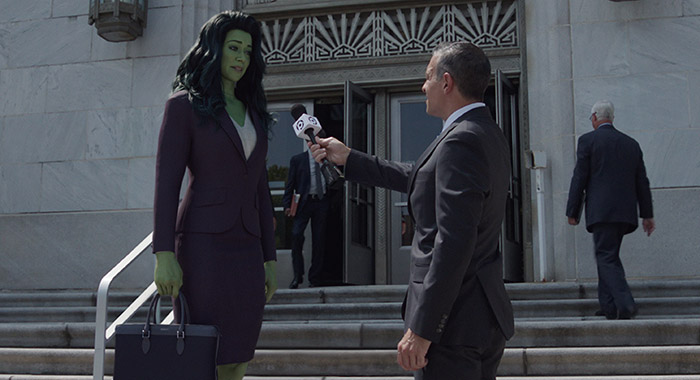
(Photo by Marvel Studios)
But let’s talk about Todd (Jon Bass) for a moment. Finally revealed as HulkKing, he represents something of a “not-so-big-bad” for the season. Granted, revealing a Leader (Tim Blake Nelson) or a Doctor Doom to be the true party interested in Jen’s blood is the exact expected thing the series strove to subvert. So, an otherwise bored rich kid with an inferiority complex and the ability to mobilize similarly-minded young men is the sort of adversary She-Hulk would definitely face in 2022 — or is 2025? He just doesn’t present in the way adversaries typically do in the MCU.
The failure or success of his depiction depends on how far out of the Marvel formula a given viewer feels comfortable in straying. Like Ms. Marvel abandoning its presumed big bad for the rogue Damage Control agent, it is up for debate. For our part, he makes intellectual sense as the personification of online trolls who obsessively mock anything and everything featuring a woman sight unseen. And in terms of story, he also articulates questions viewers should be asking of Jen in regards to the powers and the gravitational pull toward being a superhero. While he articulates this in a regressive and ultimately selfish way — he’s ultimately asking “why wasn’t it me?” — he still ends up representing the interior conflict simmering throughout the season: Does Jen want this after all?
In that regard, HulkKing is a successful antagonist. But we’ll still admit a bigger comeuppance was missing in favor of the “Shulkiest” demonstration of Jen’s powers.
Smashing the Disney+ Wall

(Photo by Marvel Studios)
Throughout writer John Byrne’s association with She-Hulk, he and the character had a peculiar relationship. It culminated in the late 1980s when Jen, tired of his shenanigans, broke through the comic book page to address him directly and air her grievances. It established for all time that She-Hulk knows she’s a comic book character and that she can break the fourth wall, physically if need be.
With that in mind, it makes perfect sense that the live-action, Disney+ Jen would react in a similar way once she noticed just how diminished she was becoming in her own story. Thus, she broke through the Marvel hub on Disney+ to visit the Walt Disney Studio lot and, ultimately, the Marvel Studios offices to air her grievance with the show’s writers and the chief creative director of the MCU: K.E.V.I.N. — the Knowledge Enhanced Visual Interconnectivity Nexus.

(Photo by Jesse Grant/Getty Images for Disney)
Part algorithmically-driven A.I., and part joke about Marvel Studios president Kevin Feige (right down to the hat), the extended sequence with K.E.V.I.N. (an as-yet uncredited voice performance) followed up on the notion suggested by The Incredible Hulk credit parody in the opening: the stakes presented by HulkKing were not the true stakes of Jen’s last regular appearance on Disney+ (for now anyway). They were, instead, the things expected by the weight of previous Marvel Studios projects and the sensation that there is a Marvel Method in place as the studio expanded into television. Bruce (Ruffalo) could’ve had a lampshade on his head when he burst into Emil’s meeting lodge and the point would be no louder than it is here with Jen and K.E.V.I.N. joking about VFX artist availability and the X-Men.
Nevertheless, we caught ourselves wanting an amount of the expected. Certainly not the fistfight between all the men while a powerless Jen watched. And not necessarily a moment for Jen (or She-Hulk) to deliver just one punch (with all apologies, DC fans) to Todd — that still plays into what he wants — but at least a few more moments within the MCU proper for Jen to orchestrate his downfall.
Read also: Marvel TV Ranked by Tomatometer: She-Hulk Knocks Moon Knight Out of the Top 10
That said, Jen literally smashing all the fourth walls to resolve her problems with the ultimate creative authority is still a resolution worthy of the She-Hulk comics we’ve read. Like HulkKing, the success of the approach all depends on the individual viewer. But in terms of the season’s overarching story — Jen coming to own She-Hulk as concept, an aspect of herself, an occupation, and as intellectual property — it is the most expansive and thematically resonant expression of Jen taking control. It also concludes the character arc as Jen, despite powering down because the VFX team is already in Wakanda, has her conversation with K.E.V.I.N. while wearing her supersuit.
It may not be the same visceral thrill of Tony Stark (Robert Downey Jr.) revealing himself as Iron Man, but it reflects Marvel’s belief that it can support a wildly self-referential and more complicated conclusion to a character’s origin story.
The Next Case?

(Photo by Marvel Studios)
But with Jen finally resolved to be an attorney at law and a superheroic She-Hulk, our thoughts naturally move to the next case.
The most obvious possibility: We will see her during Daredevil: Born Again’s 18-episode run. That’s a lot of screen time for Matt (Charlie Cox) to carry even if Foggy (Elden Henson), Karen (Deborah Ann Woll), and Fisk (Vincent D’Onofrio) are there. And, really, we like this Matt and this Jen together. It’s not meant to last, of course, and a Daredevil episode featuring Jen could occur well after they break it all off, but we would like a little more time with them flashing their smiles at each other.
Outside of that, we have K.E.V.I.N. seemingly confirming a second season and a film appearance. In terms of the former, we think keeping the GLK/H setting and the legal comedy format is the best choice. Jen and her world is malleable, of course, and she could go into practice for herself, but Nikki (Ginger Gonzaga), Pug (Josh Segarra), and Mallory deserve a little more exploration. Granted, we’re assuming Jen would want to go back and Halliway would give her an appropriate bump in pay. If that proves to be the case, there is still a lot of comedy to mine in the case of the week.
At the same time, Jen going on her own offers a few interesting possibilities and supports the season finale’s notion that she is in control of her destiny. Of course, our fondness for the She-Hulk run by writer Charles Soule and artists Javier Pulido and Ronald Wimberly may be coloring our perception of that possible change in setting.
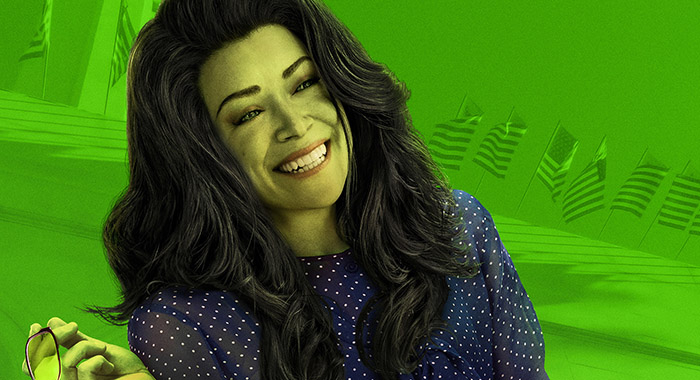
(Photo by Marvel Studios)
One other option is, of course, to go full superhero with Jen as an Avenger. The comedy would still be there, of course, but there would also be a heightened opportunity for drama and action. Like we said, the character and the tones she can operate in are varied and, maybe, that’s something worth exploring next time.
And we suppose it is always possible Jen may get a larger taste of the main Marvel tone in next year’s Secret Invasion. Has Pug been a Skrull this whole time?
Oh, and that film? It’s probably not World War Hulk or Planet Hulk despite Bruce showing up with his son, Skaar. Our guess right at this moment: The Hulks will return in Captain America: New World Order. Their blood is still partially Super Soldier Serum, after all, and that will definitely be of interest to the Leader and any other associates he may have in that project.
Finally, our one other tease in the episode leaves us with a question: What other show could not only pull Wong (Benedict Wong) into its orbit, but make Emil comfortable with a long-term stay in Kamar-Taj?
On an Apple device? Follow Rotten Tomatoes on Apple News.






